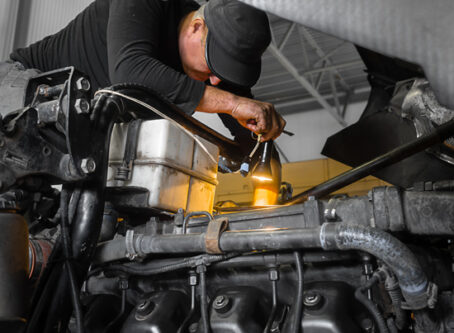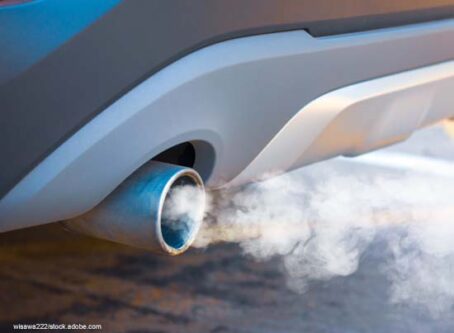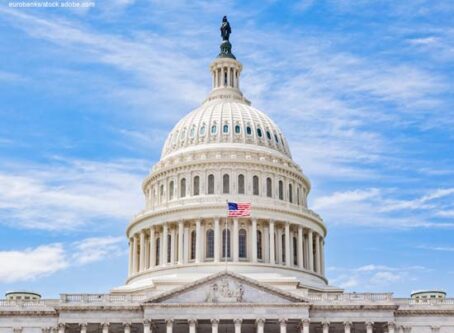House panel debates merits of congestion pricing
Several stakeholders testifying during a House hearing regarding traffic congestion agreed that the nation is facing a major problem. However, the panel and lawmakers were split on whether or not congestion pricing such as tolling is the right way to address the issue.
On Wednesday, Sept. 11, the House Highways and Transit subcommittee held a hearing titled “Pricing and Technology Strategies to Address Congestion on and Financing of America’s Roads.” Lawmakers and six stakeholders debated whether tolling, congestion pricing or even a fuel tax is the best way to solve congestion across the nation.
The panel of witnesses weighed in:
- Oliver Gilbert III, mayor of Miami Gardens and chairman of Miami-Dade Transportation Planning Organization.
- Travis Brouwer, Oregon Department of Transportation assistant director for public affairs.
- Tilly Chang, executive director of San Francisco County Transportation Authority, on behalf of the Intelligent Transportation Society of America.
- Darren D. Hawkins, CEO of YRC Worldwide Inc., on behalf of the American Trucking Association.
- Timothy J. Lomax, Ph.D., PE, Regents Fellow at Texas A&M Transportation Institute.
- Marc Scribner, Senior Fellow at Competitive Enterprise Institute.
Although all agreed the country is facing a congestion problem, not everyone could agree on tolling. On the other hand, the majority of those present recognized the need to increase the federal fuel tax.
Tolling
During opening remarks, Chairwoman Eleanor Holmes Norton, D-D.C., pointed out that some supported greater tolling flexibility for states and localities. However, others think there should be more barriers. That appeared to be a major theme during the hearing.
In submitted testimony, Hawkins explained why toll roads are a poor revenue source for highways. To start, collection costs are extremely high compared to other sources of revenue. In 2016, the Pennsylvania Turnpike spent more than $200 million to collect about $1 billion in tolls, or about 20%. Conversely, the cost to collect a federal fuel tax is just 0.2% of revenue.
Second, tolls lead to traffic diverting to neighboring roadways not equipped to handle the additional traffic. This is especially true for trucks.
“Specifically with regard to the trucking industry, whether a carrier decides to avoid a toll road depends on a number of factors, including the type of load, delivery deadline, whether the driver or carrier determines route choice, and whether the driver or carrier is responsible for toll costs,” Hawkins testified. “Note that the critical missing element here is the shipper. With few exceptions, the shipper is not directly billed for toll costs. Therefore, the carrier usually bears the cost of the toll and has to attempt to recover these costs by either improving efficiencies or increasing rates across the carrier’s entire customer base.”
Lastly, Hawkins referred to what he called “unfair subsidization.” Meaning, because only a fraction of the roads can be tolled, a small minority of motorists are essentially paying the costs of an entire state’s surface transportation system.
Hawkins also pointed out that YRC pays $750,000 each year for Rhode Island’s truck-only toll alone.
“Providence is as the 130th largest city in the United States,” Hawkins stated. “What would happen to our nation’s supply chain, truck drivers and economy if just half of the largest 100 cities in America implemented similar tolls?”
During his testimony, Mayor Gilbert touted the success of express lanes on Interstate 95 known as 95 Express. Norton questioned that success by showing a picture of stopped traffic next to an empty express lane, suggesting perhaps people are not willing to pay for tolls:
Tolling fatigue
Chairman of the Committee on Transportation Peter DeFazio, D-Ore., referred to “tolling fatigue” in Texas, pointing out a tolling moratorium in the state. Essentially, Lomax agreed with DeFazio that the tolls have not shown to solve any of the congestion problems.
DeFazio also pointed out how high variable toll pricing can get.
“We’re talking about $1.70 (in Miami Gardens),” DeFazio said. “We’ve seen almost $5 a mile in D.C. What kind of public acceptance do you think that’s going to have?”
Other lawmakers were also sympathetic to the trucking industry when it comes to tolling. Rep. Carol Miller, R-W.V., commented that tolling disproportionately affects the trucking industry. Rep. Sharice Davids, D-Kan., asked Hawkins how all this affects trucking:
In a letter to the subcommittee, the Owner-Operator Independent Drivers Association echoed that sentiment:
“Research has shown that tolling of any variety is an extremely wasteful method of funding compared to fuel taxes. Additionally, tolled roads consistently fail to meet revenue projections, creating unanticipated funding shortfalls and inevitable rate increases. Furthermore, congestion pricing would simply impose yet another fee on truckers, who already pay more than their fair share for infrastructure investment through federal and state fuel taxes, International Registration Plan taxes, federal excise taxes on new trucks, trailers, and tires, existing toll road taxes and numerous other state and local levies.”
Several lawmakers were also skeptical of what motivates congestion pricing. More specifically, Brouwer suggested that congestion pricing encourages motorists to choose different schedules. However, lawmakers and other witnesses were quick to point out that most workers do not have that kind of flexibility with work schedules.
The Alliance for Toll-Free Interstates also sent a letter to the subcommittee on the subject:
“History has shown that, when given full consideration, states recognize what all the impacted industries have always known – that tolling interstate lanes which drivers now freely access is not only unpopular, it is an inefficient financing mechanism that is the worst possible approach to raising transportation revenue. Imposing tolls on existing interstates will increase shipping costs for goods, suppress consumer activity, waste revenues on bureaucratic administration, double-tax businesses, divert traffic onto local roads, and negatively impact residents and communities located around toll facilities.”
Federal fuel tax increase
While there was some lively discussion about tolls, most agreed that the federal fuel tax is long overdue for an increase.
“Around here, we’re paralyzed,” DeFazio said. “My god, we can’t figure out how we’re going to pay for this. ‘How are you going to ever pay for this?’ Oh let’s see, we haven’t adjusted the gas and diesel tax since 1993.”
DeFazio noted that people have shown that they are willing to pay to get out of congestion. He pointed out that red and blue states alike have increased fuel taxes and registration fees with no political fallout.
Norton stated that a modest fuel tax increase would cost only $100 a year for the average motorist, which is better than being late for work. On the other side of the aisle, Rep. John Katko, R-N.Y., also threw his support behind a federal fuel tax increase.
A few dissenters included Marc Scribner, who did not agree with a fuel tax increase. Rep. Mark Meadows, R-N.C., went on an emotional rant questioning why North Carolina should have to pay a federal tax for a project that may not benefit them at all.
Regardless of the solutions Congress may come up, Timothy Lomax made one thing clear: “Doing nothing is not free.”
Related story:









